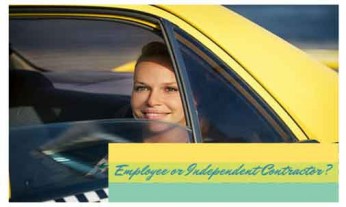 Lyft, Uber, and other rideshare operations have snagged customers from the taxi industry, leaving cab drivers unsettled and anxious about the future of the taxi business. It seems rideshares have upended the transportation industry, netting billions of dollars. But not everything has been coming up roses in the rideshare business. If you drive a cab and believe you have a legal claim against a rideshare company, consulting with an employment attorney might be advisable.
Lyft, Uber, and other rideshare operations have snagged customers from the taxi industry, leaving cab drivers unsettled and anxious about the future of the taxi business. It seems rideshares have upended the transportation industry, netting billions of dollars. But not everything has been coming up roses in the rideshare business. If you drive a cab and believe you have a legal claim against a rideshare company, consulting with an employment attorney might be advisable.
Legal Issues
Believe it or not, despite the huge earnings of rideshare apps, taxi drivers and others have begun to call attention to some serious concerns with the new system, and as a result, these new companies are facing real legal problems:
- Regulations that differ from city to city: Taxi companies are quick to note that rideshare drivers are not held to the same standards as cab drivers. Some localities have responded by filing lawsuits alleging deceptive and unfair business practices because rideshare drivers do not adhere to the same regulations as cabbies. In some cases, the regulations of note regard commercial drivers license rules, car inspection expectations, insurance laws, licensing fees, and uniform rates.
- Airports are losing money on fees and permits in some cities: Airports typically collect revenue through permitting, and some airports are now banning rideshares. In San Francisco, in fact, airport officials were even arresting rideshare drivers for trespassing. It is looking like regulation is going to have to come down quickly in order to avoid more of this type of issue.
- Insurance is not always verifiable: Despite claims of million-dollar liability policies, several states have warned passengers that they may not be covered in the event of an accident. Instances involving limited coverage have occurred here in California.
- Company cars do not necessarily meet ADA standards: When the vehicle you call up on your app is not wheelchair friendly, it can be a real problem. Disabled patrons are denied service because they offer no alternatives for mobility-impaired persons. That means they are not meeting the guidelines established in the Americans with Disabilities Act.
- Drivers with criminal backgrounds slip through the cracks: In California, over 20 rideshare drivers with felony backgrounds that were quite serious were discovered on the road in 2016. That led to stricter rules regarding background checks, with heftier fines for companies that hire sex offenders and violent felons or terrorists.
Rideshare Taking Unfair Advantage
The rideshare market is increasing globally, largely because the supply of drivers is endless, since virtually anyone can become a rideshare driver. That fact, combined with unfair regulation discrepancies compared to cab companies, has created a disparity that has left cab drivers wanting more of the transportation pie. [Read more…]

